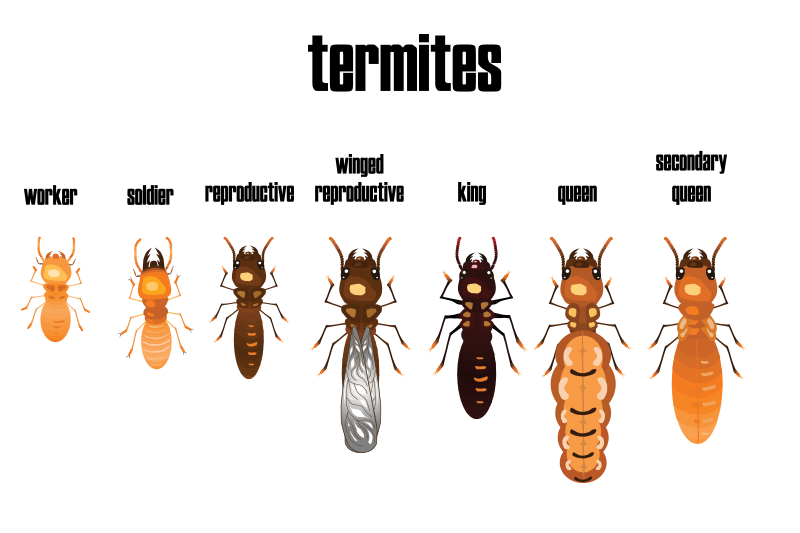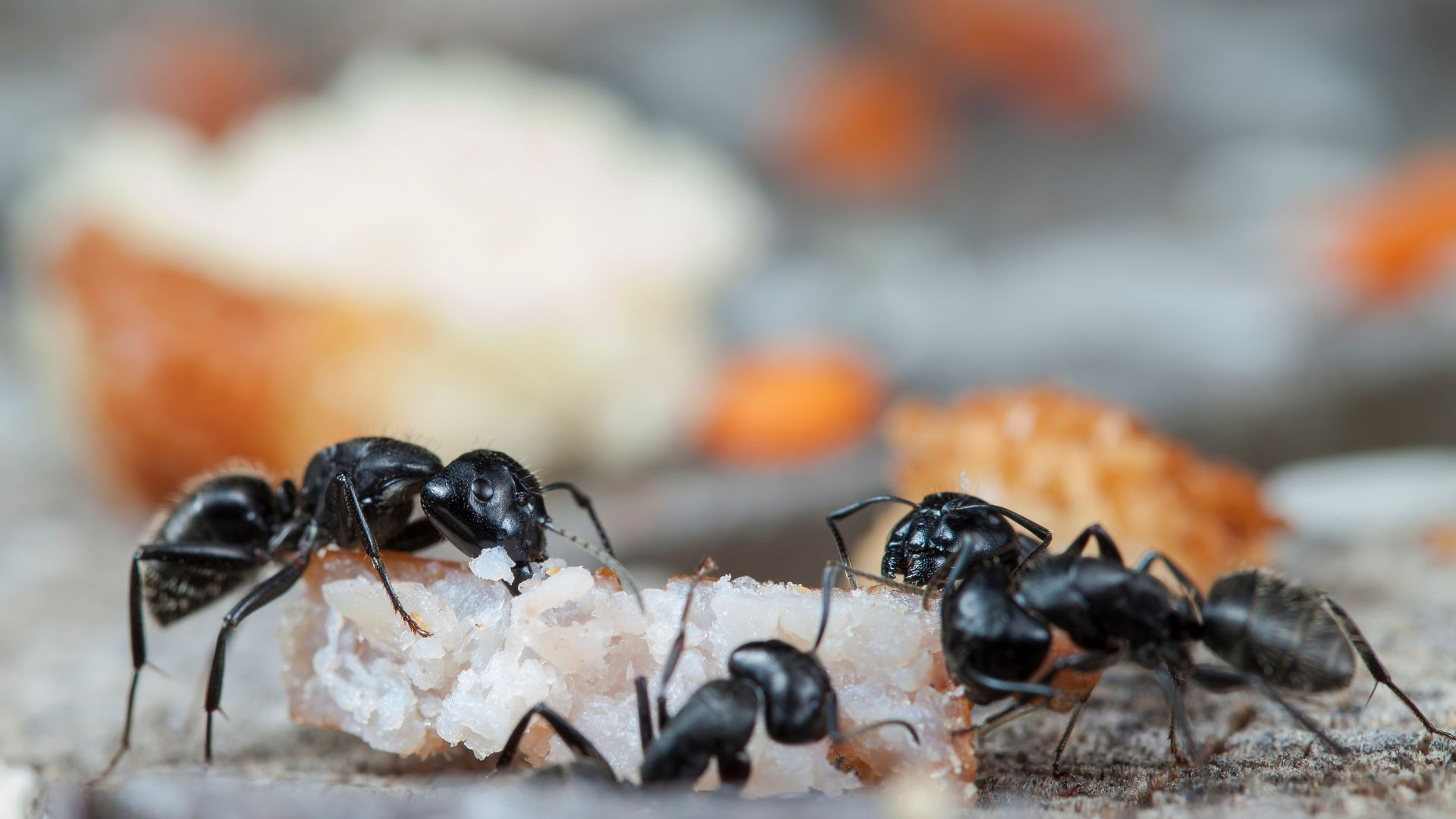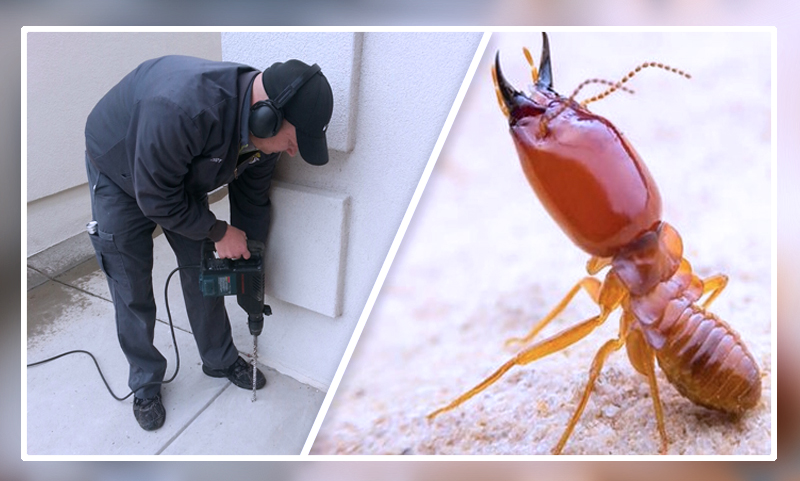Advanced Termite Control: Proven Techniques for Removing Termite Infestations
Advanced Termite Control: Proven Techniques for Removing Termite Infestations
Blog Article
Environmental Influence of Bug Control: Harmonizing Performance With Sustainability
The environmental influence of bug control is an important problem that needs a delicate balance between achieving efficiency in managing bugs and ensuring sustainability of our ecosystems. As we make every effort to shield our crops, homes, and health and wellness from the risks postured by insects, the techniques we use can inadvertently hurt the atmosphere. From making use of damaging chemicals that leak right into our dirt and water to the unplanned repercussions on non-target varieties, the consequences of traditional insect control methods are significant. However, there are emerging approaches that use hope for a more sustainable method to pest administration. These options not just purpose to address the immediate bug issues however likewise take into consideration the long-term health and wellness of our world.
Hazardous Chemicals in Pest Control
The usage of dangerous chemicals in bug control postures considerable environmental and wellness dangers that require mindful consideration and mitigation techniques. Pesticides, herbicides, and chemicals are frequently utilized to eliminate parasites, but their prevalent application can lead to unintentional effects. These chemicals can pollute dirt, water resources, and the air, influencing not only the targeted parasites however additionally beneficial pests, wild animals, and human beings.

To resolve these threats, incorporated pest administration (IPM) strategies are being advertised as a much more lasting option. IPM includes a combination of approaches such as biological control, habitat manipulation, and the targeted use pesticides as a last hope (ant control monroe nc). By embracing an alternative technique to pest control, we can decrease the environmental and health and wellness influences associated with damaging chemicals while efficiently handling pest populations
Impact on Non-Target Species
Thinking about the unplanned repercussions of insect control techniques, the effect on non-target varieties is an essential facet that needs comprehensive analysis. While insect control procedures aim to target details insects, various other microorganisms in the environment may be accidentally impacted. Non-target species, including helpful insects, birds, mammals, and also plants, can experience straight or indirect injury from pesticide applications or organic control techniques.
Chemicals can have lethal or sub-lethal effects on non-target varieties. Insecticides made to combat a certain bug parasite may hurt pollinators like bees or natural predators such as ladybugs. In addition, chemical deposits can build up in the setting, impacting non-target microorganisms over time. Biological control representatives, if not species-specific, can position threats to unintentional targets, interfering with the ecological equilibrium.
To reduce the influence on non-target types, incorporated bug monitoring (IPM) methods that stress an all natural strategy to pest control are recommended. These techniques prioritize using eco-friendly practices, decreasing injury to useful microorganisms while efficiently handling pest populaces. Performing complete risk analyses and checking the end results of pest control efforts are crucial action in securing non-target varieties and advertising overall community wellness.
Dirt and Water Contamination
Unexpected environmental repercussions of bug control approaches prolong beyond influencing non-target varieties, with considerable ramifications for dirt and water contamination - ant control services. Chemicals, herbicides, and chemical fertilizers used in bug control can leach into the soil and infect groundwater, positioning a risk to both water and terrestrial ecological communities.
Water contamination is another vital concern associated with pest control practices. Runoff from agricultural areas treated with pesticides can lug these chemicals right into neighboring water bodies, affecting aquatic microorganisms and water high quality. Contaminants in water resources can have far-reaching consequences, impacting not just aquatic life however also human health and wellness via the usage of polluted water or marine organisms. To alleviate dirt and water contamination from insect control activities, incorporated bug administration methods that prioritize sustainability and decrease chemical inputs are critical.
Air Air Pollution From Chemical Use
Exposure to airborne pesticides throughout agricultural applications postures a significant problem for air contamination control procedures. When Source chemicals are sprayed onto crops, they can volatilize right into the air and form unstable natural substances (VOCs) and various other airborne contaminants. These chemicals can contribute to the development of ground-level ozone, a major component of smog that can have detrimental impacts on human health and wellness, plant performance, and overall air quality. Additionally, chemical drift, where chemicals are carried by the wind to unplanned locations, can bring about the contamination of neighboring ecosystems and water bodies.

Approaches for Sustainable Parasite Control
In the realm of agricultural practices, executing sustainable bug control techniques is paramount for keeping eco-friendly equilibrium and protecting crop returns. Lasting pest control emphasizes using environmentally friendly approaches to handle bug populations properly while reducing harm to non-target microorganisms and communities. Integrated Insect Monitoring (IPM) is a commonly embraced strategy that combines organic, cultural, physical, and chemical control techniques to attain long-lasting insect management solutions.
Plant rotation and diversification are likewise efficient techniques to interrupt pest life cycles and produce much less beneficial conditions for insects to grow. Eventually, by integrating these sustainable pest control approaches, farmers can accomplish a balance in between pest administration performance and ecological stewardship.
Verdict
In verdict, the ecological effect of pest control approaches should be thoroughly thought about to stabilize performance with sustainability. Dangerous chemicals made use of in parasite control can cause dirt and water contamination, air pollution, and damage non-target varieties - termite control. It is crucial to execute lasting bug control methods to decrease these unfavorable results on the setting and promote a healthier community for future generations
By taking on an all natural approach to pest control, we can decrease the environmental and wellness impacts linked with harmful chemicals while properly handling pest populations.

To alleviate the air contamination triggered by chemical usage, it is vital to embrace integrated pest administration approaches that focus on the usage of non-chemical parasite control methods, such as plant turning, all-natural killers, and immune crop varieties. Sustainable parasite control emphasizes the use of ecologically pleasant methods to handle insect populaces properly while reducing harm to non-target microorganisms and environments. Integrated Bug Administration (IPM) is a widely adopted method that combines organic, social, physical, and chemical control methods to attain lasting insect management remedies.
Report this page